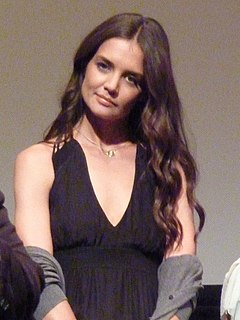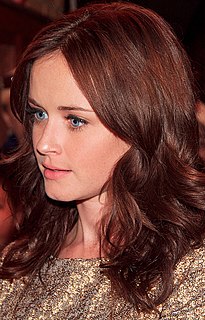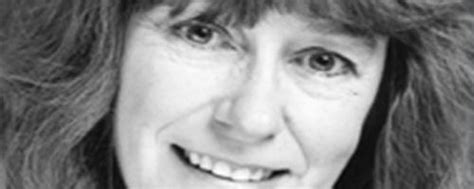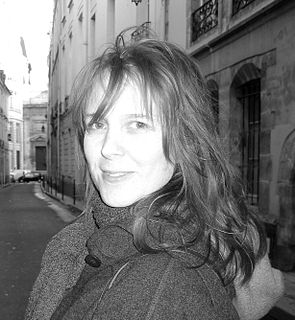A Quote by Katie Holmes
I optioned a book called "Rare Objects" by Kathleen Tessaro and I'm adapting it . It takes place in the 1930s and it's about two women and that's what I'm working on to direct.
Related Quotes
The two teachers that I had in the Art Institute who affected me the most were Kathleen Blackshear and Robert von Neumann; Kathleen Blackshear because she taught a class called design - I can't remember, design something, and in this class - it met once a week - we would do work centered around some theme, word or subject or technique or whatever, and bring it in for a three-hour discussion. And Kathleen was able, in watching and looking at our work, to direct us to all kinds of things which might relate to what we were trying to do, but she never attempted to tell us what to do.
'The Handmaid's Tale' takes place in the near future, a dystopian future, and is based on the book by Margaret Atwood. It takes place in what was formerly part of the United States at a period of time when society has been taken over by a totalitarian theocracy. It's about the women who live in subjugation.
In part I'm just mystified. Here's a woman, Hillary [Clinton], who wrote a book about it takes a "village" to raise children. It wasn't about a book about "it takes a pill." There's a "double think" that the modern person often has. Anything that's called "science" is accepted as an absolute and sweeps reason away.
One question is: Who is the working class today, and how has it changed? Where are we in that? I don't have a knee-jerk kind of 1930s thing about we must build the unions and that's the way to the future. I'm writing this book right now called Pallin' Around, and the subtitle is: "Talking to the Tea Party." And frankly I find talking to the Tea Party exhilarating, I love it.
It's one of those things where the book has all these stars that burn really bright that you hang onto and they're all saying, 'This is The Girl on the Train experience.' All those stars or hooks needed to be in the film, but sometimes they needed to be a bit different. It's important when adapting such a popular book to hit all those points but also break out expectations without slaughtering the book. And that was, for me, the joy of adapting the book.
I already optioned a book called The Personal History of Rachel DuPree. I also like The Book of Negroes by Lawrence Hill. And I love all of Octavia Butler's books. She's created some very complicated black heroines with a variety of belief systems. There are many great books out there, but those are a few of the ones that stand out.



































